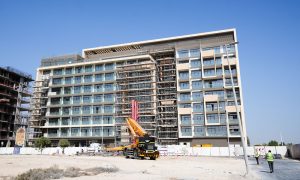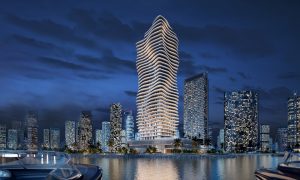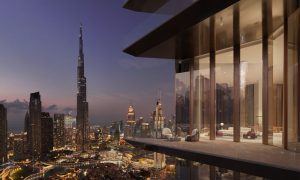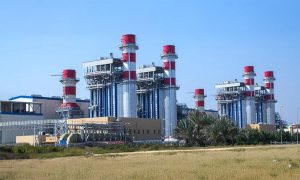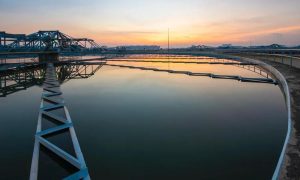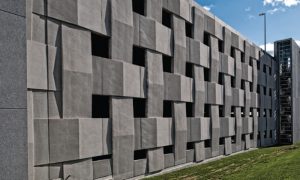Bayut.com: First half of 2016 sees rents fall in Dubai, Abu Dhabi
The first half of 2016 has left tenants in both Dubai and Abu Dhabi with something to celebrate. With rents adjusting downwards compared to the same period last year, many housing options across Dubai have become much more affordable than they were in 2015. But homeowners did not feel much heat from falling rents in the first half, as yields remained at attractive levels in both emirates.
Rental apartments in Dubai offered owners an average yield of 6% in H1 2016 while those in Abu Dhabi returned 7% during the same period. Comparing results of H1 2016 with H1 2015, Bayut noticed apartment rents in Dubai coming down by 6% on average, with average rents calculated at AED 131,000. However, apartment rents in Abu Dhabi were down a mere 3% in H1’16 against H1’15, with average apartment rents hovering around the AED 135,000 mark.
DUBAI
Category wise, studio apartments in Dubai commanded rents of AED 57,000 in the first half of 2016, adjusting a noticeable 7% against H1’15. The average rent of 1-bed and 2-bed apartments in the emirate was calculated at AED 99,000 and AED 150,000, respectively, coming down by 4% and 6%. The average rent of spacious options such as 3-bed and 4-bed apartments adjusted 6% each in H1’15. Average annual rent for the two categories remained AED 205,000 and AED 310,000 in the first six months of the year.
Considering the property yields, studio and 1-bed apartments, being most popular housing categories, returned an average yield of 7%. The 2- and 3-bed apartments kept investors engaged with yields of 6% and 5%, respectively, while the 4+ bed category returned a mere 3% in rental yields in H1’ 16.
Bayut also ran a quarter-on-quarter (QoQ) analysis and again found apartment rents adjusting 7% on average at the end of Q2’16. The average rent of studio apartments in Dubai adjusted 7% in Q2’16 against average rent in Q1’16, while the rent of 1-bed apartments increased by 1%. Bigger units like 2-bed and 3-bed apartments saw a 5% and 3% respective adjustment in rents, while the rent of 4+ bed category adjusted by 5% in Q2’16.
ABU DHABI
Faring marginally better than neighbouring Dubai, average rents in the UAE capital faced a downward dip of a negligible 3%. Studio apartments in Abu Dhabi cost an average of AED 63,000 to rent in the first half, posting a value increase of 2%. One-bed apartments were rented out at an average of AED 97,000, the rates having dropped by 1% compared to H1’15 value. The rents for 2-bed and 3-bed apartments averaged AED 136,000 and AED 181,000, respectively, posting a 4% and 2% decline in values.
As much as rental adjustments bode well for tenants, the emirate’s attractive rental yields continue to bring glad tidings for landlords and investors. Studio apartments topped the rental return chart with a 9% yield on average, while 1-bed and 2-bed apartment categories followed with 8% and 7% respective yields. Larger options like 3-bed and 4+ bed apartments also attracted investors during the first six months of 2016 with 7% and 5% rental return, in that order.
Per Bayut’s Q2-on-Q1 comparison, average rents in the UAE capital grew by 1% against values calculated at the end of Q1’16. Category wise, the rent of studio apartments in Abu Dhabi adjusted 3% in Q2, but 1-bed, 2-bed and 3-bed apartment rents only adjusted 1% each in the same period. Our analysis also observed a good number of people interested in the luxurious and spacious 4-bed units as this was the only apartment category that registered a 2% increase in average rent against Q1 values.
OUR TAKE
With the market moving into the second half of the year, global developments continue to weigh on the world economy. Regional security and political issues like Brexit have ushered in an era of uncertainty that is making investors and home buyers delay their spending decisions in some cases, resulting in the marginal loss of pace in vibrant real estate markets like the UAE. Still the UAE government’s commitment to job creation, ecological improvement, boosting the tourism sector and development of Expo 2020-related infrastructure remain continued drivers for the economy, helping attract human capital that is in turn keeping demand for quality and affordable real estate options on the rise. Dubai and Abu Dhabi continue to be among the few rewarding realty markets in the world and will continue to do so in the near and distant future.
Kainat Malik is Online Marketing Associate at Bayut.com

